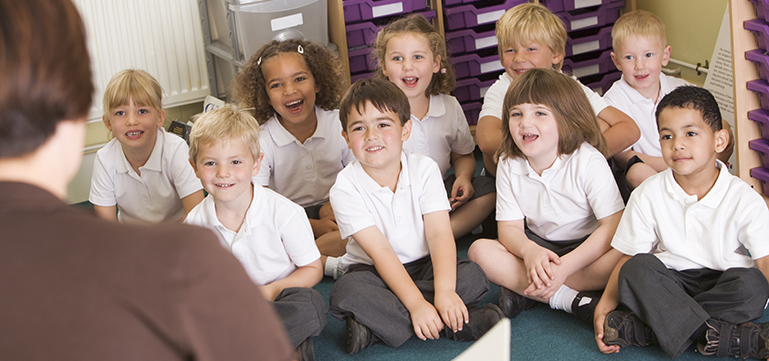Pupils’ Cabinet promotes independence and supports school life

Quick links:
Context and background to the effective or innovative practice
Various groups have been established for learners to lead within the school, in order for them to express their views and have an opportunity to change threads within the school, for example through the school council, the eco committee, ‘Mêts Grêt’, ‘Ffrindiau Ffreutur’, ‘E-Cadets’, ‘Dewiniaid Digidol’ (Digital Wizards), ‘Heartstart Crew’, Welsh Language Ambassadors and ‘Chwaraewyr Da’ (Good Players). The school council contacted the Children’s Commissioner’s office in order to work with the ‘Super Ambassadors’ project. Because the school council and ‘e-Cadets’ already review some key policies for the governing body, it was felt that a ‘learners’ voice cabinet’ needed to be formed in order to bring representatives from all groups together each half term. The purpose of this was to ensure a better system for sharing information between the groups and pupils within the school. The Cabinet has been a great success. It is run wholly by pupils, and there are purposeful minutes and effective action targets for each term.
Description of nature of strategy or activity
The various groups within Ysgol Gwenffrwd continue to meet and target their areas of responsibility; however, through the Cabinet’s activity, projects can be co-ordinated better to ensure that there is no overlap and that there are no periods that are too ‘heavy’ in terms of extra-curricular activities – through effective timing, and sharing ideas and resources.
What impact has this work had on provision and learners’ standards?
The most prominent effect has been on pupils’ independence. They are able to prepare and record meetings wholly independently, ‘push’ agreed targets and report back to their initial groups. After doing so, this confidence often permeates their work in the classroom, outside the usual curriculum and when communicating with others, including visitors to the school. As a result, the ‘learners’ voice’ is very prominent in all of Gwenffrwd’s successes.
How have you shared your good practice?
Visitors to the school are guided by pupils and, if there is a discussion on policy, the discussion is held with pupils. The Cabinet holds a meeting each half term, and the door is open for anyone to sit and observe. Representatives from the Cabinet (or sub-groups) work with governors, the parent-teacher group or the senior leadership team to discuss, adapt or make policies and procedures.
The school and pupils have worked together in this way to create the equality policy and the ‘Healthy Living’ Food and Fitness Diary, which they share with other interested pupils.
Once pupils at Ysgol Gwenffrwd have worked on policies and presentations, for example when working on the 7 Threads of the Healthy Schools National Quality Mark, they are shared with Flintshire officers – to motivate and support schools who will be ready to apply for the Quality Mark in the future.